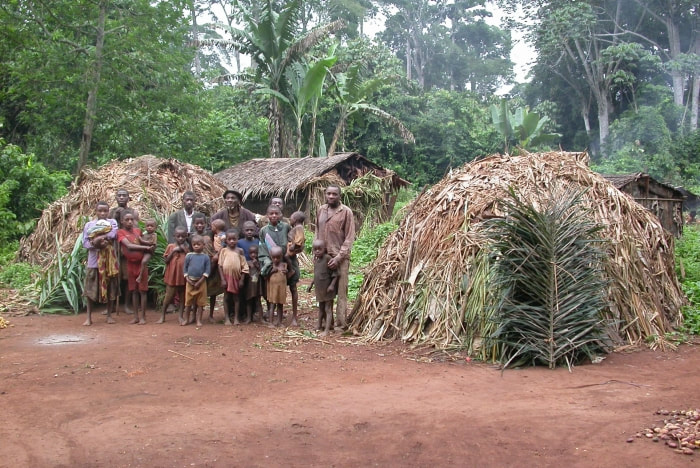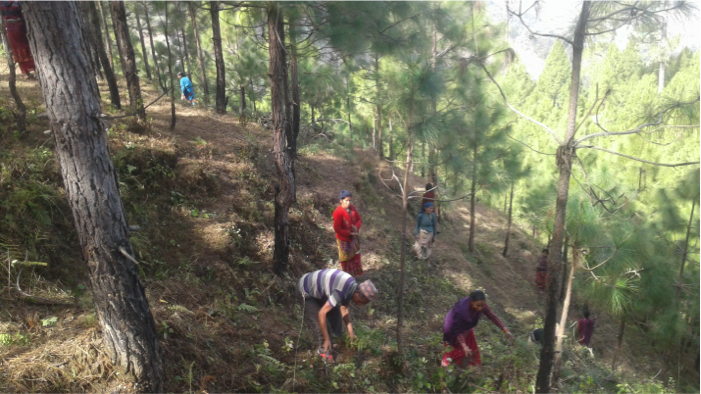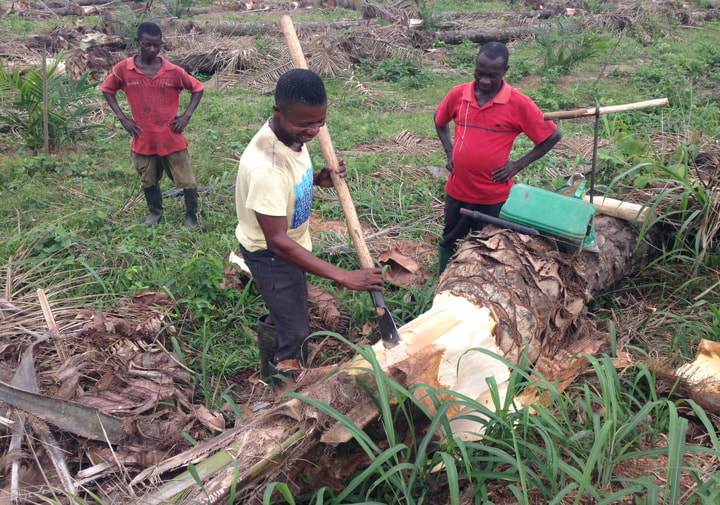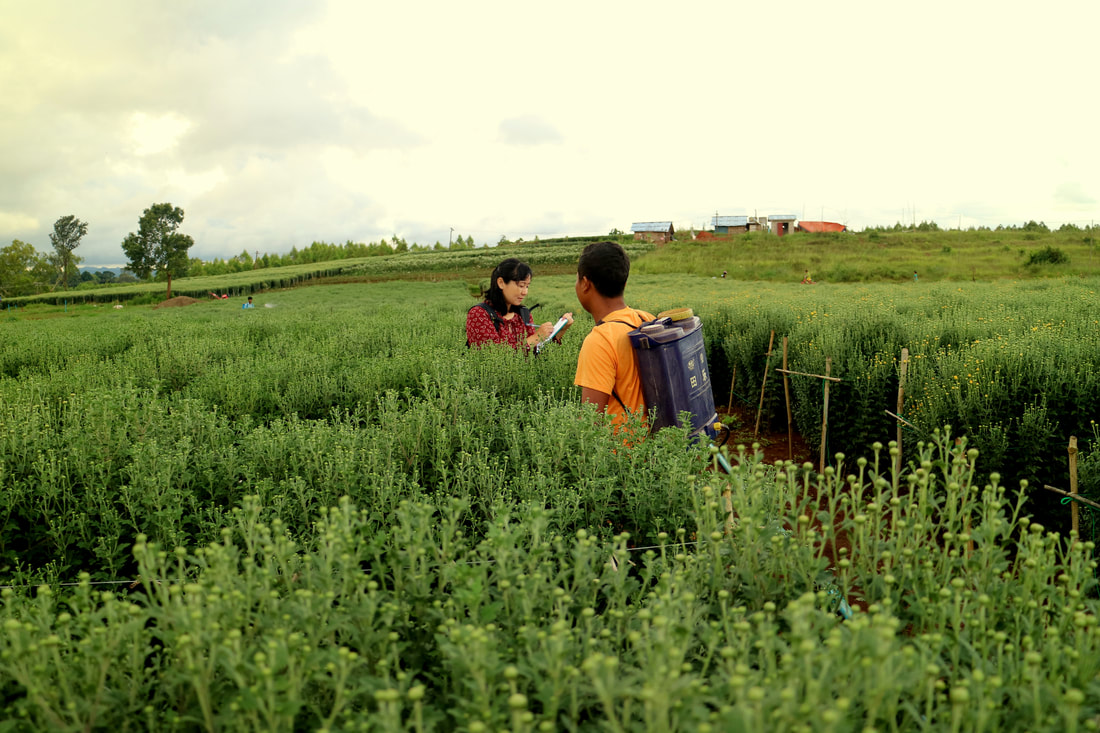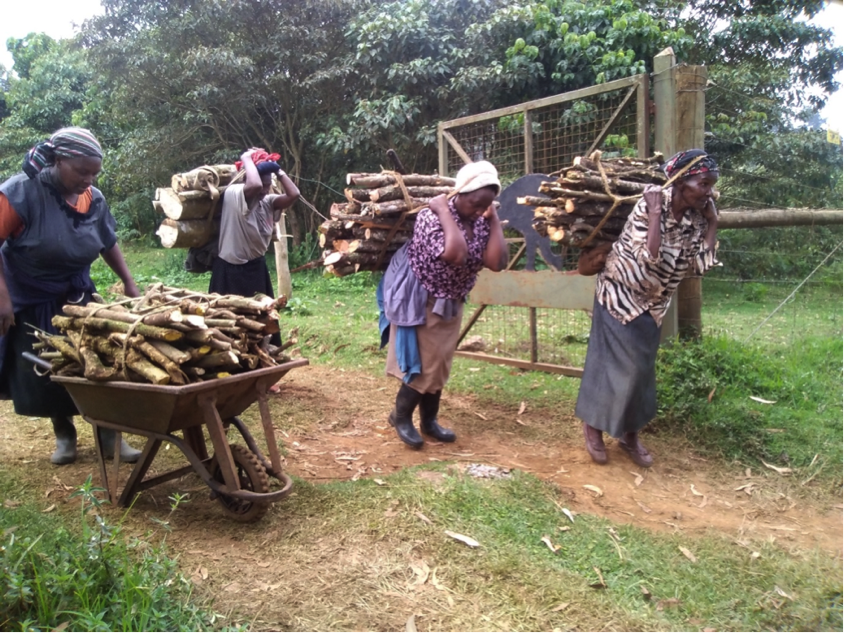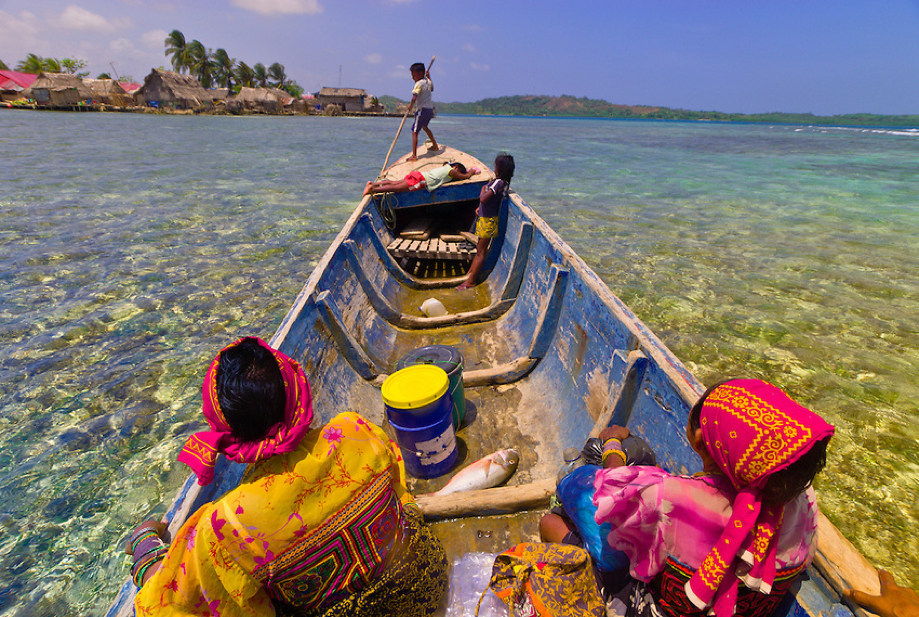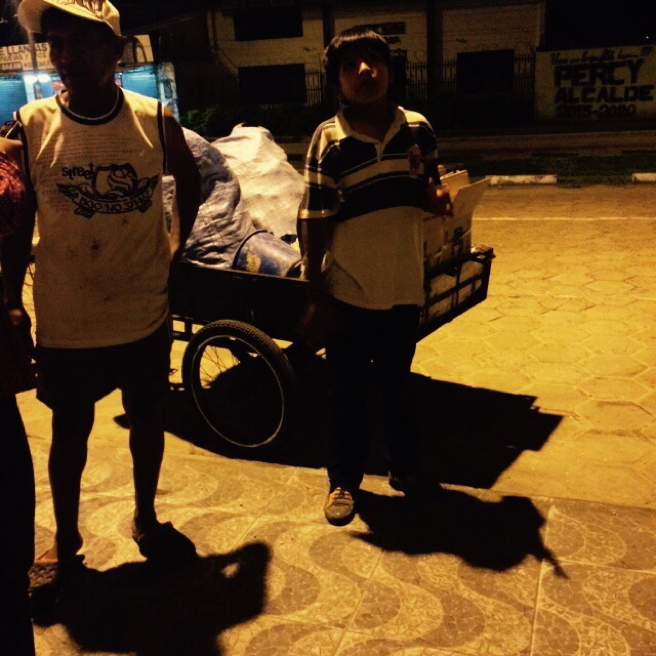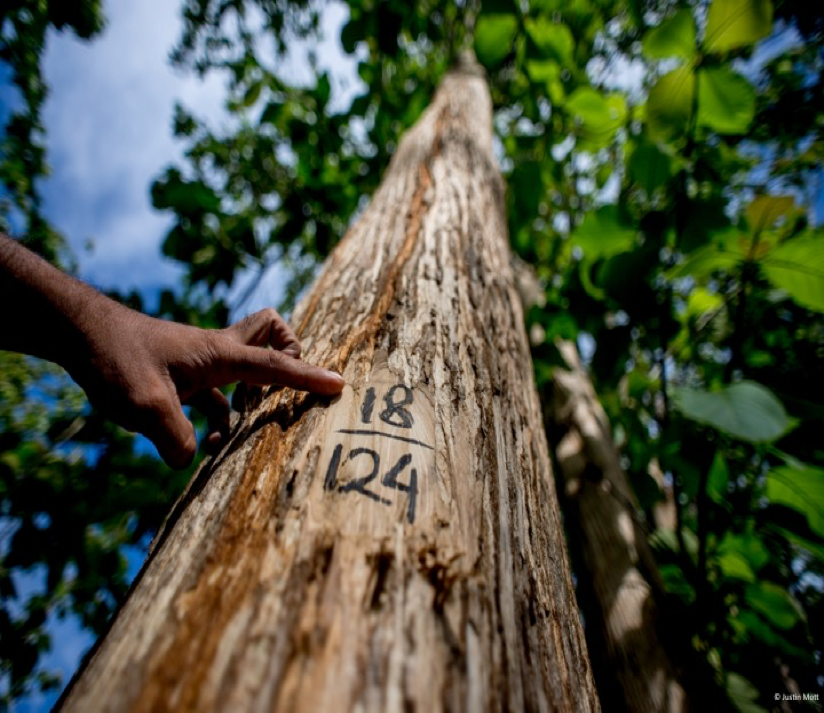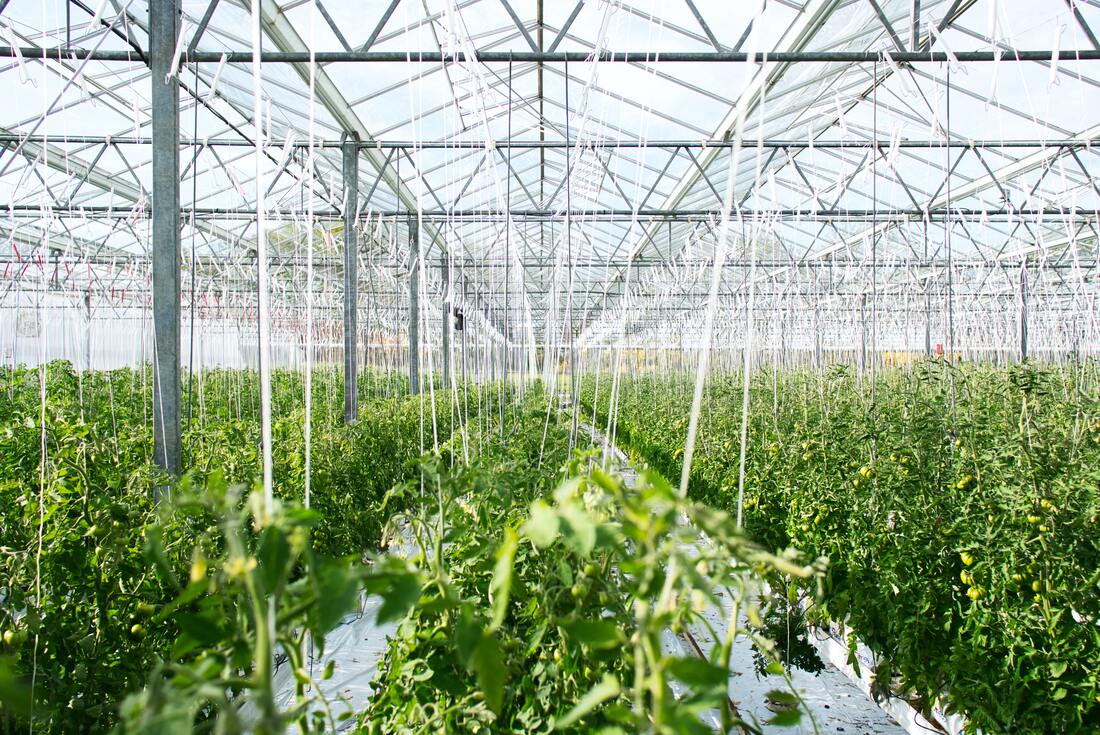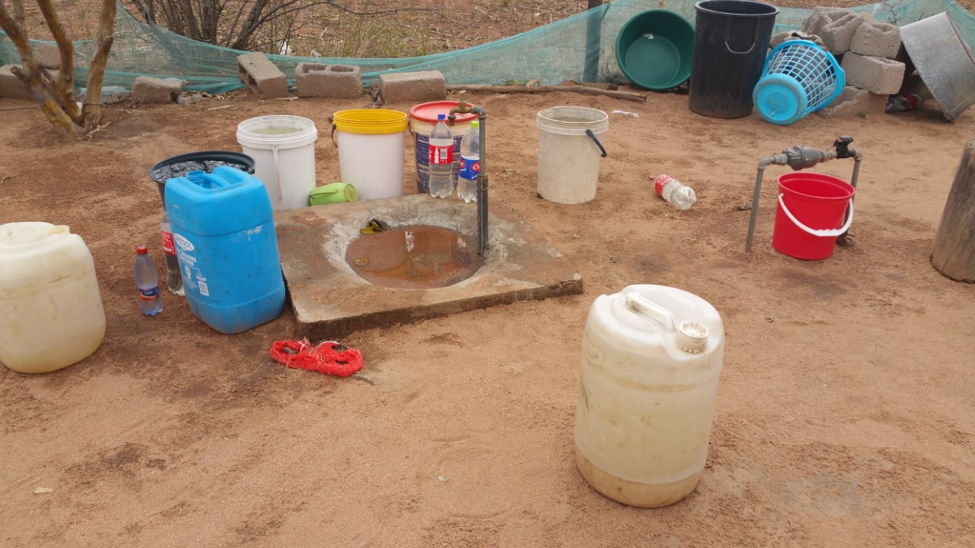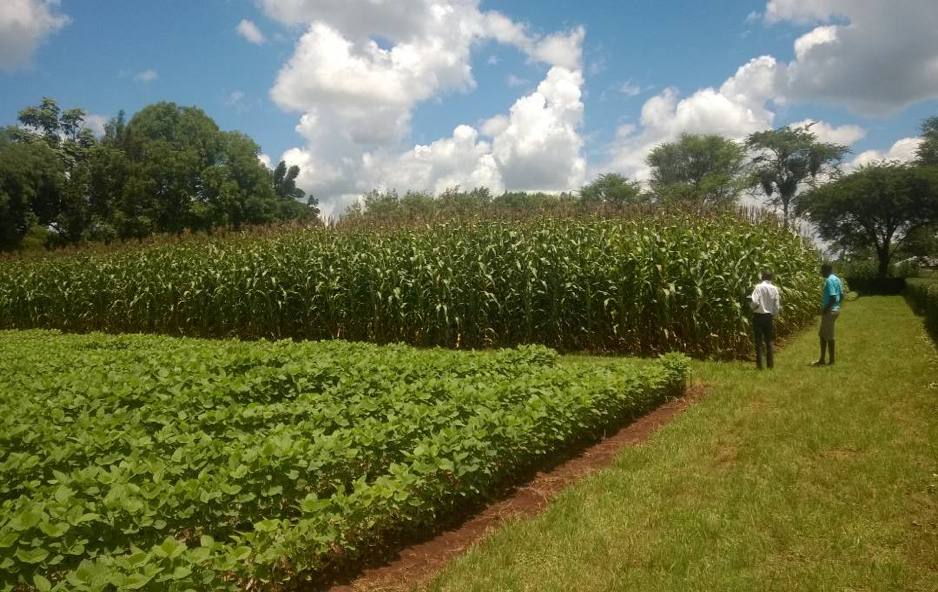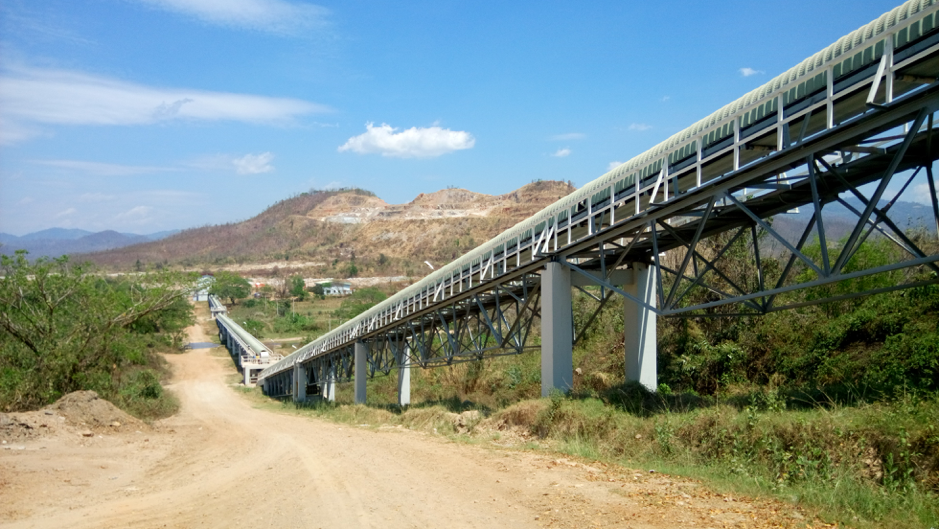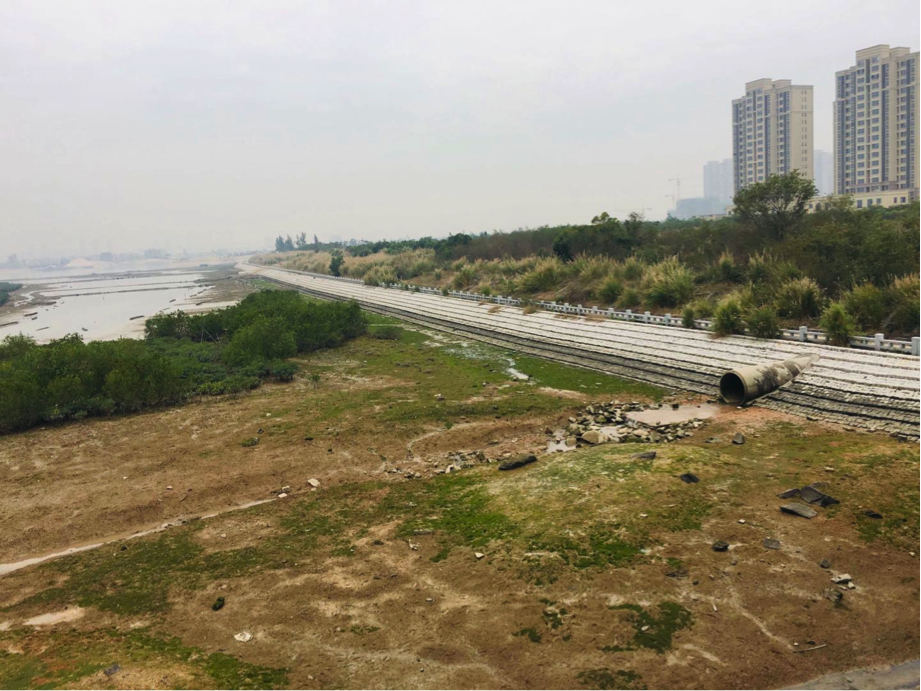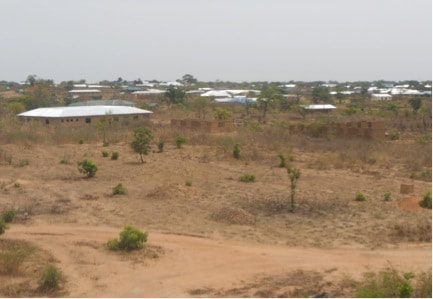PhD Theses
- Sustainability assessment of biofuel feedstock production in Ghana
Student: Abubakari AHMED (Ghana) - Potential CO2 emission reductions through the utilization of roofs in Tokyo
Student: Jelena ALEKSEJEVA (Latvia) - Development of an Information and Communication Technology (ICT) Framework for local food systems in South Africa
Student: Robert Massimo ALFONSI (Italy) - Adoption and impacts of certification standards for oil palm and cocoa smallholders in Ghana
Student: Eric Brako DOMPREH (Ghana) - Assessment of urban ecosystem services in Pyin Oo Lwin, Myanmar
Student: Helen (Myanmar) - Sustainability outcomes of eco-industrial park development in China: evidence from cases in Beijing and Tianjin
Student: Hongru HONG (China) - Assessing the effectiveness of coastal ecosystem-based adaptation to climate change: Evidence from coastal communities in Bali, Indonesia
Student: Lam Thi Mai HUYNH (Vietnam) - Adoption and impacts of clean bioenergy cooking technologies in rural Kenya: A transect approach in Muranga and Kiambu counties
Student: Alice KARANJA (Kenya) - Indigenous Guna perspectives on sustainable development challenges: A transdisciplinary approach to identify impact interlinkages
Student: Rodolfo Dam LAM (Panama) - Municipal Solid Waste Management in rapidly urbanizing cities of the developing world: Exploring pathways to sustainability through a systems-based approach in Santa Cruz de la Sierra
Student: Denise P. LOZANO LAZO (Bolivia) - Impact of Japan timber logging practices and procurement in Sarawak, Malaysia
Student: Vinamra MATHUR (India) - Corporate Environmental Sustainability (CES) in the retail sector : The case of Japanese and South African supermarket companies
Student: Merle NAIDOO (South Africa) - A holistic framework for systematic mangrove restoration planning
Student: Jie SU (China) - Sustainability performance of diversification and better management practices for small-scale aquaculture in Bangladesh and Myanmar
- Exploring the convergence of welfare and degrowth in the Japanese social welfare sector: How to manage an aging and shrinking society without economic growth
- Suburbanization in Ghanaian cities: Local impacts and future scenarios for peri-urban production landscapes
MSc Theses
- Value changes in indigenous Baka communities due to forest use and cover change in Cameroon
- From concept to action: Assessing the implementation of Nature-Based Solutions in Mongolia
- Institutions and policies for equitable natural resource access: Comparative analysis of community-based forest management systems in Nepal
- Multi-stakeholder perceptions analysis of protected agriculture for vegetable production in Sri Lanka
- Water tensions in sugarcane areas of the Kingdom of Eswatini following the 2015-2016 drought: A water access perspective
Student: Nikole ROLAND (United States of America) - Conservation Agriculture on smallholder farms in Bindura, Zimbabwe: Factors of adoption and possible sustainability impacts
Student: Spencer SIBANDA (Zimbabwe) - Assessing the Effectiveness of Environmental Impact Assessment (EIA) Process in Myanmar : Case study of the Cement Plant in Naypyitaw
Student: Ei THWE (Myanmar)
Theses summaries
Sustainability assessment of biofuel feedstock options in Ghana
|
Problem statement
Biofuel feedstock production has been promoted across Sub-Saharan Africa in the past decade mainly for economic development and energy security. However feedstock production can have important local sustainability impacts to land use change, poverty, livelihoods, land tenure and food security, among others. Most studies that have assessed the local biofuel impacts of biofuel feedstock production in Ghana have either focused on single impacts or feedstock production system. Aims and Objectives This study aims to provide a holistic assessment of the multiple sustainability impacts of different feedstock production systems in Ghana, including jatropha, sugarcane and oil palm. The specific objectives are to:
|
Potential for CO2 emissions reduction and other sustainability co-
|
Problem statement
Rapid urbanisation has had important sustainability impacts globally. Urban areas are currently responsible for the bulk of greenhouse gases (GHG) emissions globally. Furthermore, cities experience many different climatic and non-climatic challenges, often linked to the loss and conversion of green spaces. Interventions within the urban landscape can help in mitigating GHG emissions as well as other environmental problems but due to locked-in infrastructure, changing the urban structure or adding new elements is often not feasible in many cities and urban areas. Roofs account for 20–30% of urban surface space and most of it is unused, offering opportunities for the implementation of interventions to curb some of these urban challenges such as solar panels and green roofs. Aims and Objectives This research aims at assessing the potential CO2 emissions reduction and the concurrent potential for other sustainability co-benefits specific to urban areas by deploying green roof and PV technologies on building roofs. It focuses on Sumida Ward, Tokyo, which experiences many relevant sustainability challenges. The specific objectives of this research are to
|
Development of an Information and Communication Technology (ICT) framework for local food systems in South Africa |
Problem statement
Information and Communication Technologies (ICTs) can become valuable tools for enhancing the sustainability of food systems. For example ICTs can be instrumental in creating social networks to share information for sustainable production and consumption practices in food systems. Current studies mainly focus on the use of ICTs for monitoring or tracing food, but there are few studies about their effectiveness across all stages of the food system, especially in emerging economies such as South Africa. Aims and Objectives This research aims to explore the interface between ICTs and local food systems, with a particular focus on identifying key areas that should be prioritized when devising ICT solutions for sustainable food system transformation in South Africa. Specific objectives include to:
|
Value changes in indigenous Baka communities due to forest use and cover change in Cameroon |
Problem statement
Indigenous communities are increasingly recognized as stewards on nature as their traditional lifestyles and governance systems have sustained natural ecosystems for centuries. The close interaction with ecosystems constitutes an integral part of their identity, culture and livelihoods, and are thus crucial for their well-being. A good example are the indigenous Baka people in Cameroon whose lives are closely linked to the forest. However, the implementation of various development and conservation projects affect the forest, which they value and depend on. Aims and Objectives This research aims to identify the multiple values indigenous Baka people in Cameroon attribute to the forest ecosystem, and how these values change over time and affect their well-being. Specific objectives include to:
|
From concept to action: Assessing the implementation of Nature-Based Solutions in Mongolia |
Problem statement
Nature-based solutions (NbS) have received growing attention in the past decades, as a means of tackling different sustainability challenges. NbS can be particularly promising in some countries such as Mongolia that face multiple compounding environmental challenges (e.g. climate change, desertification, biodiversity loss, water scarcity). However, despite the potential of NbS, their design, development and implementation is not always straightforward, due to the general lack of knowledge, capacity, and resources in the country. Aims and objectives This research aims to contextualize and assess the implementation of NbS in Mongolia through a climate-biodiversity-society nexus lens. It will focus in particular on the ongoing "Billion Tree" project. The specific objectives are to:
|
Institutions and policies for equitable natural resource access: Comparative analysis of community-based forest management systems in Nepal |
Problem statement
A large fraction of Nepal's population resides in the subtropical region, and is highly dependent on sub-tropical forest ecosystem services. However these forests are vulnerable to degradation due to land use change, overexploitation and climate change. To ensure the sustained provision of these crucial ecosystem services, more than 30,000 Community-Based Forest Management (CBFM) areas have been developed, covering 4.5 million households. These systems entail the management, protection and utilization of forestland directly by the local communities. Although they have contributed to forest area increase, the cumulative effects of different processes threaten their contribution to human wellbeing. Aims and Objectives This study aims to identify the factors affecting the resilience of CBFM systems in the subtropical forest zones of Nepal, and its effects for ecosystem services delivery and human wellbeing. Specific aims include to:
|
Adoption and impacts of certification standards for oil palm and cocoa smallholders in Ghana
|
Problem statement
Cocoa and oil palm contribute significantly to the national economy and rural livelihoods of Ghana. However their production can have negative environmental and socioeconomic impacts. Certification is one of the key tools that can promote the sustainable production of cocoa and oil palm. In addition to ensuring the adoption of environmentally friendly production practices, certification can also improve household livelihoods and food security, and act as a poverty alleviation mechanism. Aims and Objectives The aim of this research is to assess the adoption and impacts of certification standards for oil palm and cocoa smallholders in Ghana. The specific objectives include to:
|
Assessment of urban ecosystem services in Pyin Oo Lwin, Myanmar
|
Problem statement
Urban ecosystems provide numerous ecosystem services that can contribute to more livable, healthy and resilient cities. Maintaining urban ecosystem services can contribute to green economic transitions. While there has been a growing literature on the value of urban ecosystem services, there are still significant knowledge gaps for secondary cities of developing countries. Aims and Objectives The aim of this research is to understand how urban ecosystems can contribute to a green economy transition in Myanmar, focusing on Pyin Oo Lwin, a secondary city. Specific objectives include to:
|
Sustainability outcomes of eco-industrial park development in China: evidence from cases in Beijing and Tianjin |
Problem statement
Since the reformation and opening-up of the Chinese economy in the late 1970s, thousands of industrial parks have been constructed to both boost economic growth and meet the growing global demand for industrial products. Although industrial parks contributed substantially to economic growth, they have also caused substantial damages to the environment. Due to growing environmental awareness, the Chinese government undertook a national programme to promote the construction and verification of eco-industrial parks (EIPs) that embrace environmentally friendly production practices such as industrial symbiosis, However, EIPs can still have a number of important sustainability trade-offs, which are not well understood. Aims and Objectives The aim of this research is to explore the sustainability performance of EIPs, and especially whether the upgrade to EIP status improves sustainability. The specific focus is on two EIPs, the Beijing Economic and Development Area (BDA), and the Tianjin Economic and Development Area (TEDA). The specific objectives are to:
|
Assessing the effectiveness of coastal ecosystem-based adaptation to climate change: Evidence from coastal communities in Bali, Indonesia |
Problem statement
Climate change-induced disasters such as sea-level rise, and more frequent and intense droughts, floods, and typhoons have been posing significant threats to coastal communities across the world. As adaptation to climate change has emerged as one of the biggest sustainability challenges, there is a growing need for the robust assessment of the effectiveness of different adaptation approaches. Recently, ecosystem-based adaptation (EbA) has received growing attention as a possibly more sustainable and cost-effective approach to climate change adaptation in coastal areas than conventional engineering defenses. However, despite the expanding literature on coastal EbA, there is a lack of robust syntheses of the evidence regarding the status and effectiveness of coastal EbA globally. Aims and objectives This study aims to understand the effectiveness of coastal EbA approaches, especially compared to traditional engineering solutions at the local scale. Specific objectives include to:
|
Adoption and impacts of clean bioenergy cooking technologies in rural Kenya: A transect approach in Muranga and Kiambu counties |
Problem statement
Access to reliable and safe energy is essential for achieving sustainable development and poverty eradication in Sub-Saharan Africa. Cooking is a major component of final household energy demand in the region, but it is still dominated by traditional biomass fuels such as charcoal and fuelwood. A shift towards modern cooking solutions could reduce the negative environmental and socioeconomic impacts associated with the use of traditional biomass particularly related to deforestation, greenhouse gases emissions, health, poverty and gender. Aims and Objectives The aim of this research is to assess the adoption and the impacts of clean bioenergy cooking interventions in Kenya and propose policies that could enable scaling up their adoption. Specific objectives include to:
|
Indigenous Guna perspectives on sustainable development challenges: A transdisciplinary approach to identify impact interlinkages
|
Problem statement
Indigenous communities around the world face a myriad of sustainability challenges due to a series of political, demographic and development circumstances. Their level of socioeconomic development is generally lower than the rest of the country, while at the same time important environmental challenges emerge. Despite the calls to include indigenous peoples' perspective when developing responses to solve such challenges, there is little progress. This is partly due to the lack of robust transdisciplinary research approaches that effectively address help identify through an indigenous perspective sustainability priorities at complex intersection between the social, economic, and environmental pillars of sustainable development. Aims and Objectives This study aims to unravel through an indigenous perspective the current sustainable development challenges, how different sustainability outcomes are interlinked, and suggest pathways to achieve sustainable development. The focus is on the Gunas in Panama, an indigenous group in Panama with a high degree of autonomy. Specific objectives are to:
|
Municipal Solid Waste Management in rapidly urbanizing cities of the developing world: Exploring pathways to sustainability through a systems-based approach in Santa Cruz de la Sierra |
Student: Denise P. LOZANO LAZO (Bolivia)
Type: PhD Duration: 2017-2020 (Concluded) Study country: Bolivia Problem statement
Rapid urbanization, along with changes in production and consumption patterns, has often resulted to large increases in waste generation. It is expected that the main impacts and challenges of increasing waste generation will occur in developing countries putting further pressure to the currently inadequate infrastructure. Efficient and sustainable municipal solid waste management (MSWM) systems can tackle such problems, but their design and implementation can be challenging in contexts of limited financial, technical and institutional resources. Aims and Objectives The aim of this research is to analyze MSWM in Santa Cruz de la Sierra, a rapidly urbanizing city of Bolivia, from a multi-level and system-based perspective, in order to explore pathways influencing its sustainability. Specific objectives include to:
|
Impact of Japan timber logging practices and procurement in Sarawak, Malaysia
|
Student: Vinamra MATHUR (India)
Type: PhD Duration: 2017-2020 Study country: Malaysia Problem statement
Achieving sustainable forest management is a key challenge in highly biodiverse tropical countries such as Malaysia. Timber demand from international markets can complicate substantially such efforts. It is thus very important to tackle at the local, national and regional scale the multiple factors that contribute to illegal logging such as weak governance/institutions, bad business practices, and the lack of law enforcement and monitoring. Aims and Objectives This study uses a socio-ecological system approach to understand the environmental, social, legal, and economic ramification of Japanese timber sourcing practices in Malaysia. Specific objectives include to:
|
Corporate Environmental Sustainability (CES) in the retail sector : The case of Japanese and South African supermarket companies |
Student: Merle NAIDOO (South Africa)
Type: PhD Duration: 2015-2018 (Concluded) Study country: Japan, South Africa Problem statement
Corporations can play a critical role in achieving the Sustainable Development Goals (SDGs) as they have the resources and market incentives to effectively address multiple sustainability issues. Corporate Environmental Strategies (CES) can decrease the direct and indirect environmental impacts of corporations, through internal operations improvements, green supply chain management and stakeholder engagement. Most research on CES focuses on the manufacturing industry, but the retail sector is an equally important player due to its global economic power and influential position between supply and demand. Aims and Objectives The aim of this research is to identify and explore the factors influencing the adoption, implementation and effectiveness of CES strategies in the supermarket sector in Japan and South Africa. The specific objectives are to:
|
Multi-stakeholder perceptions analysis of protected agriculture for vegetable production in Sri Lanka |
Problem statement
In the context of rapid population growth, urbanization, and climate change, conventional agricultural practices have sometimes struggled to provide reliable and nutritious food, especially in parts of the developing world. Protected Agriculture in greenhouses is an alternative agricultural model to open-field has been recently experiencing increasing interest around the world to mitigate such challenges. However, the dynamics of protected agriculture are not always well understood in the developing world. Aims and Objectives This aim of this research is to understand the status, drivers, impacts, challenges and opportunities of the protected agriculture sector for vegetable cultivation in Sri Lanka. Specific objectives include to:
|
Water tensions in sugarcane areas of the Kingdom of Eswatini following the 2015-2016 drought: A water access perspective |
Problem statment
Industrial crops such as sugarcane have been promoted in various parts of Sub-Saharan Africa to boost national economic development and rural poverty alleviation. However depending on the context the large-scale production of such crops can have different environmental and socioeconomic impacts. Considering its extensive need for irrigation, the large-scale production of sugarcane has often caused competition for scarce water resources between different water users. Aims and Objectives The research aim to understand if, and how, sugarcane expansion and drought has influenced perceived tensions over water. It focuses on the sugarcane cultivation areas of Komati river basin in Eswatini. The research objectives include to:
|
Conservation Agriculture on smallholder farms in Bindura, Zimbabwe: Factors of adoption and possible sustainability impacts |
Problem statement
Conservation agriculture has been promoted in several parts of Sub-Sahara Africa as a sustainable farming practice that can have multiple environmental and socioeconomic benefits. These include benefits to farm productivity, household income, and soil quality among several others. While several studies have focused on the multiple factors that influence the adoption of conservation agriculture practices, few have assessed its actual impacts in a holistic manner. Aims and Objectives This study aims to assess the local sustainability impact of conservation agriculture in Zimbabwe. Specific objectives include to:
|
Assessing the Effectiveness of Environmental Impact Assessment (EIA) Process in Myanmar : Case study of the Cement Plant in Naypyitaw |
Problem statement
Environmental Impact Assessment (EIA) processes aim to reduce the unacceptably high negative environmental impacts from projects and policies. Nonetheless the prescriptions of an excellent EIA report may have disappointing environmental performance if not implemented properly. Currently EIA legislation is promoted in several developing countries but it is not always clear whether it has the positive environmental outcomes initially anticipated, especially for sectors with high environmental impact. Aims and Objectives The aim of this research is to assess the effectiveness of EIA system in Myanmar. The specific focus is on two operational cement plants in Naypyitaw and Mandalay considering that the cement industry has significant environmental impacts. Specific objectives are to:
|
A holistic framework for systematic mangrove restoration planning |
Problem statement
Mangroves are a highly biodiverse and productive ecosystem that provides multiple ecosystem services to local and global communities. Although mangroves' ecological and socio-economic importance has been emphasized repeatedly, mangroves are still lost globally. Despite the numerous efforts to restore mangroves globally, success rates are unfortunately low. To ensure the effectiveness and sustainability of mangrove restoration, there is a need for holistic frameworks to inform systematic mangrove restoration planning. Such frameworks should integrate the ecological, economic, and social aspects of mangrove restoration and help identify the priority areas for mangrove restoration. Aims and Objectives This research aims to develop a holistic framework for systematic mangrove restoration planning, using the Large Xiamen Bay (LXB) ecosystem in the southeast China as a case study. The LXB is an ideal context due to the extensive mangrove degradation over the past decades, the high fragmentation of the mangrove habitat, and the renewed interest in mangrove restoration by the local and national governments. The specific objectives include:
|
Exploring the convergence of welfare and degrowth in the Japanese social welfare sector: How to manage an aging and shrinking society without economic growth |
Problem statement
Current growth-oriented capitalistic economic systems that constantly pursue to increase Gross Domestic Product (GDP) are ecologically destructive and socially unjust. In the midst of thr current environmental crisis, scholars have proposed that a radical transformation of the economic system would be necessary to stay within safe and just planetary boundaries. In this context, degrowth is gaining popularity. Degrowth, by definition, refers to the democratically planned reduction of material and energy production and consumption to reduce ecological footprints in a spirit of social justice (reducing inequality) while improving human well-being. However, the question of why and under what conditions such a transition could happen remains unsolved. Aims and Objectives This research aims to understand what would be the conditions for the Japanese social welfare sector to transform into a degrowth society, considering population aging and shrinking. Specifically, the focus will be on degrowth pathways in the welfare sectors in Japan. The specific objectives are to:
|
Sustainability performance of diversification and better management practices for small-scale aquaculture in Bangladesh and Myanmar |
Problem statement
Inland aquaculture is one of the fastest growing food production sectors globally and has been becoming a major source of animal protein in many parts of the world, contributing significantly to food and nutritional security. To meet the increasing fish demand worldwide, the aquaculture sector has experienced notable intensification, often employing monocultural models that heavily rely on large inputs of pelleted feed and agrochemicals. Although such approaches to intensification may yield productivity gains, they may also lead to adverse environmental impacts such as eutrophication and acidification. This requires the adoption of appropriate solutions to enable the sustainable intensification of the sector. Aims and Objectives This main am of this study is to assess the sustainability outcomes of the adoption of diversification strategies and better management practices (BMPs) for the sustainable intensification of small-scale aquaculture (SSA) producers, using Bangladesh and Myanmar as case studies. The specific objectives include:
|
Suburbanization in Ghanaian cities: Local impacts and future scenarios for peri-urban production landscapes |
Problem statement
Urbanization is a major driver of global change with significant far-reaching positive and negative sustainability outcomes. Global population has more than doubled in the past decades, with most of the increase occurring in urban centers of the developing world. This has often led to unplanned urban expansion into adjoining rural areas, having major environmental and socioeconomic consequences through the conversion of peri-urban production landscapes. This can have many knock-on effects on the ability of local peri-urban communities to adapt to the changes posed by urbanization. Aims and Objectives The aim of this research is to investigate the suburbanization processes and their effects on the peri-urban areas of Ghanaian cities. Specific objectives include:
|



